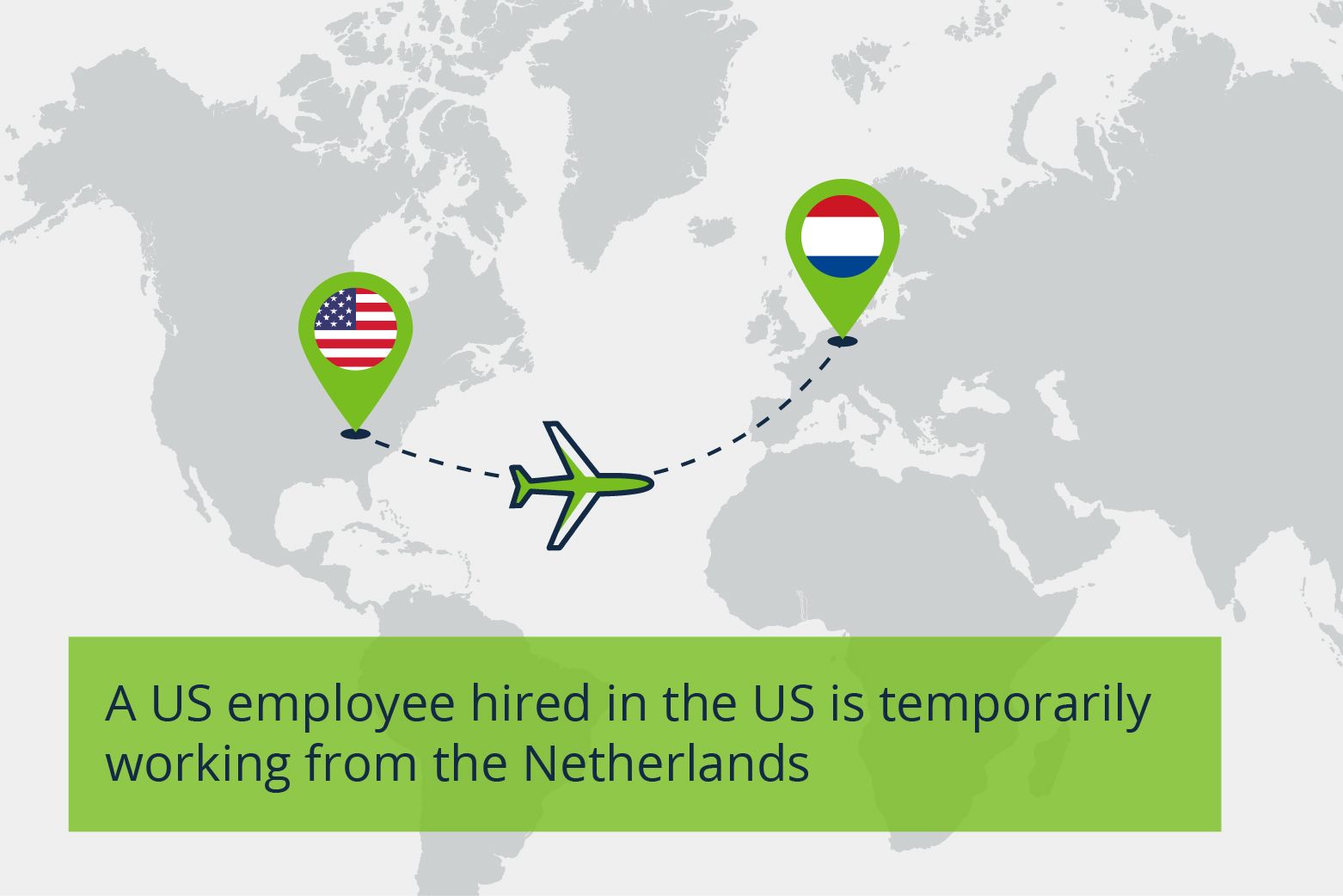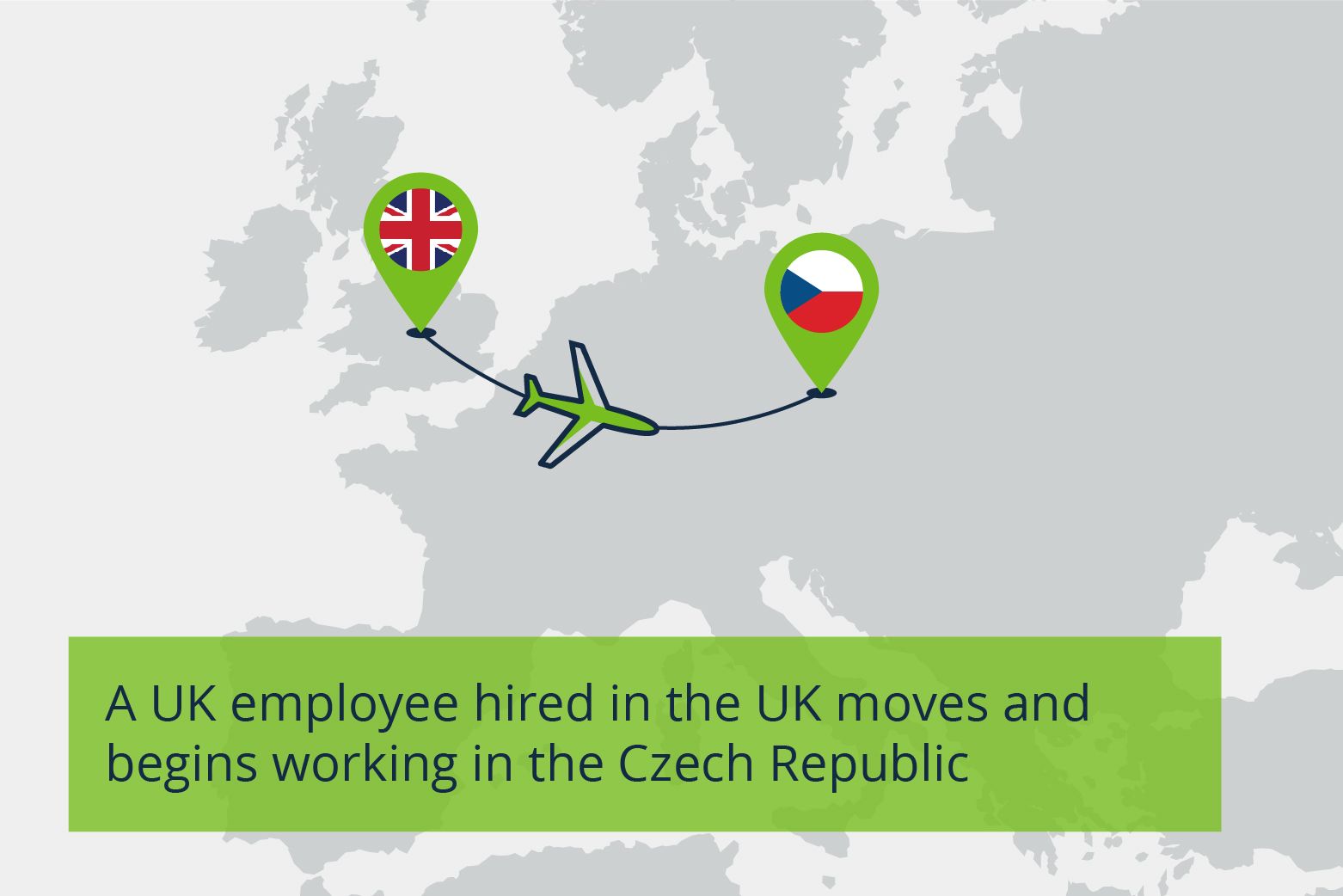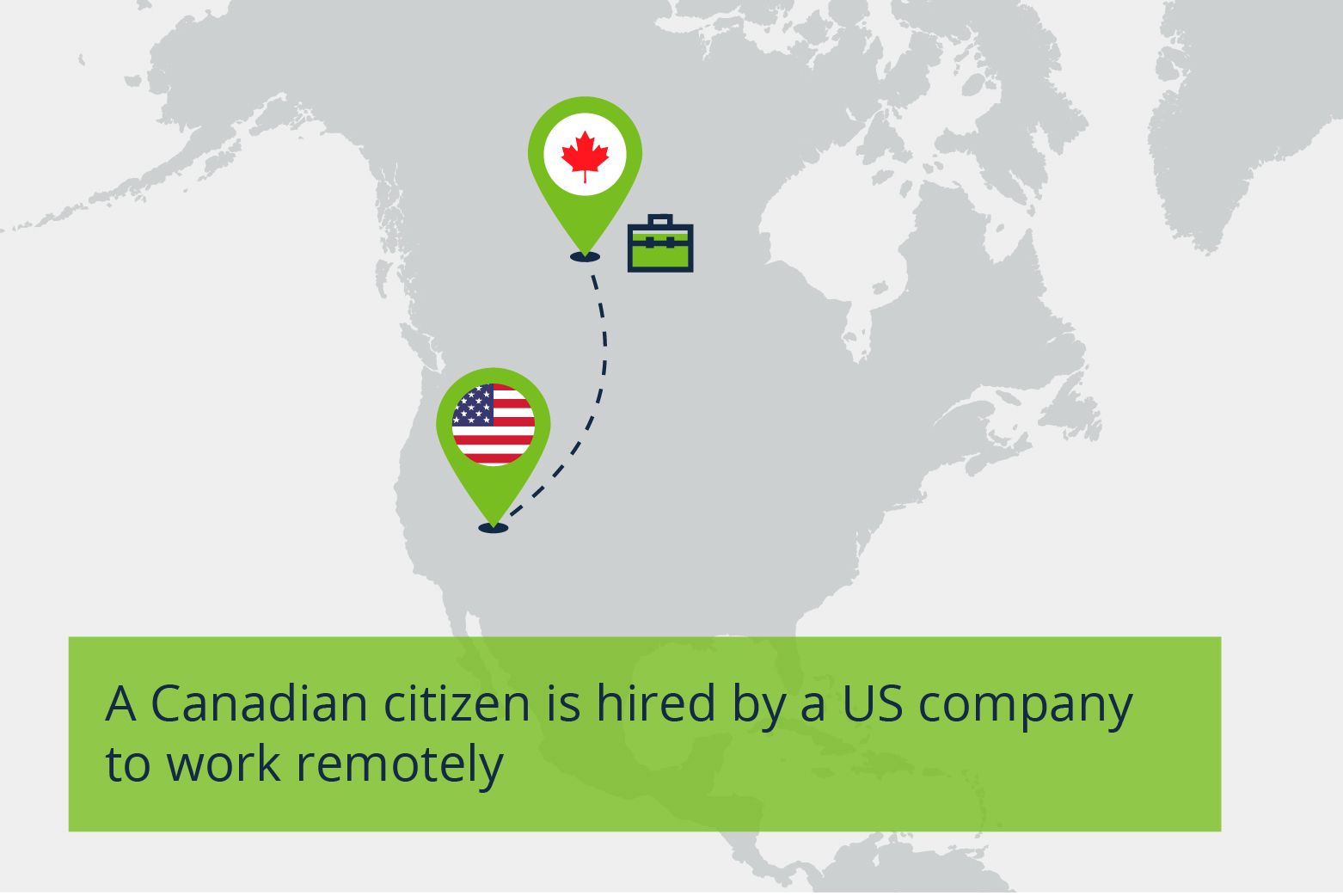Blog
Employees Working Abroad: The Insurance Implications
How is an employee covered for injury while working when they are not living in their state of hire, or if they're living in another country?
As employers of all sizes expand globally, they must know how to address the global insurance rules, regulations, and best practices. Your company may have operations only in the US, but that doesn't mean it you don’t have exposure and regulatory requirements in other countries.

The question we often get these days, more frequently post-COVID, is how an employee is covered for a work-related injury when they are not living in their state or place of hire, or living in another country. It's important that employers establish a communication protocol for employees to advise their employer when they are moving to a different state or abroad, and it's also important that their insurance broker knows how to address these situations as they come up.
In the US, state-to-state coverage can be addressed with a well-crafted US workers' compensation policy. You may need to add an amendment to the extraterritorial provisions, add a new state to a policy, or purchase a policy in the other state if it is a monopolistic state.
However, when the situation extends to different countries and/or beyond a six-month stay, it becomes more complicated, with extraterritorial conflicts and social scheme care. Each country must be handled according to the situation and local regulations, which could include different social schemes, provincial registration, or private insurance. This is where an insurance broker with international expertise can help you ensure compliance and global protection.
Insurance Coverage Abroad: 3 Examples
As an insurance brokerage, here is how we would manage various situations:
A US employee hired in the US is working from the Netherlands
 We recommend that any client who has employees traveling or working outside the US for up to six months, or have employees traveling to the US for work, purchase a global package policy that includes general liability, non-owned/hired auto, and foreign voluntary workers' compensation (FVWC) coverage. Should an employee be injured while traveling or working abroad, the domestic workers' compensation policy may not provide benefits due to territorial restrictions, or other factors or benefits may be delayed. In this case, we would defer to the FVWC, which would mirror the benefits the employee would have received had they been injured in the state of hire. Furthermore, the FVWC is broader in that it provides 24/7 coverage, endemic disease coverage, and repatriation coverage if the injury/illness is work-related.
We recommend that any client who has employees traveling or working outside the US for up to six months, or have employees traveling to the US for work, purchase a global package policy that includes general liability, non-owned/hired auto, and foreign voluntary workers' compensation (FVWC) coverage. Should an employee be injured while traveling or working abroad, the domestic workers' compensation policy may not provide benefits due to territorial restrictions, or other factors or benefits may be delayed. In this case, we would defer to the FVWC, which would mirror the benefits the employee would have received had they been injured in the state of hire. Furthermore, the FVWC is broader in that it provides 24/7 coverage, endemic disease coverage, and repatriation coverage if the injury/illness is work-related.
A UK employee hired in the UK moves and begins working in the Czech Republic (and there is no legal company entity in the Czech Republic)
 While the employee is living and working for the UK in the UK, the employee is covered via compulsory UK employer's liability (EL) coverage; however, once the employee moves to the Czech Republic and continues to work for the UK entity, the EL coverage is no longer valid as the employee is outside the policy territory. The company can do one of two things to ensure the employee has medical coverage while living and working in the Czech Republic:
While the employee is living and working for the UK in the UK, the employee is covered via compulsory UK employer's liability (EL) coverage; however, once the employee moves to the Czech Republic and continues to work for the UK entity, the EL coverage is no longer valid as the employee is outside the policy territory. The company can do one of two things to ensure the employee has medical coverage while living and working in the Czech Republic:
- To meet Czech law stipulations (lex loci laboris), the employee should contact the Czech social and health authorities, apply for registration under the social and health system, and pay regular contributions. Such registration is compulsory for Czech citizens employed abroad and those working permanently in the Czech Republic.
- If the company/employer is not registered in the Czech Republic, the Czech WC/EL system there is not compulsory. However, the employee can purchase alternative solutions on a voluntary basis, such as personal accident or life insurance on a commercial basis, with the help of a local partner.
A Canadian citizen is hired by a US company to work remotely (and there is no legal company entity in Canada)
 With the increase in remote working, companies have more options and places to seek employees. In this case, the employee is a Canadian national so has access to the provincial health system. It is important to set the employee up with employee benefits. Social healthcare provides medical and dental benefits, while employee benefits are added perks that can include unemployment insurance, retirement planning, life insurance, paid leave, and pension.
With the increase in remote working, companies have more options and places to seek employees. In this case, the employee is a Canadian national so has access to the provincial health system. It is important to set the employee up with employee benefits. Social healthcare provides medical and dental benefits, while employee benefits are added perks that can include unemployment insurance, retirement planning, life insurance, paid leave, and pension.
Human Resources Risks When an Employee Wants to Work Abroad
It's not just insurance that employers must think about when it comes to employees working abroad. The employer should clarify its legal obligations. Laws and rules are different in each country, and complying with local employment law is fundamental for running your business. For example, in Ireland, legislation allows employees to disconnect from work outside working hours for a minimum of 11 hours in between workdays. In Europe, if payroll is not being handled in the country they're working in, the employee may be denied access to the health care system in that country. The payroll taxes are the contributing taxes that would pay for that healthcare.
Other factors Human Resources should consider include:
- IT Protections: Will the employer's license allow the employee to connect to the VPN or access company sites from another country?
- Country Registration: In certain countries, registration is required from a labor, tax, and social security perspective. Knowing the requirements of the country the employee is operating in is important.
- Taxes: Understand the tax implications of the employer and the employee.
- Employee Satisfaction: Ensure your employee feels like a valued team member and they can connect and collaborate with other team members.
These are complex HR issues, and we recommend consulting with tax and social security advisers, immigration specialists, and/or employment lawyers to address them.
Protection for Our Clients
Although each situation is unique, it likely has a solution. When it comes to insurance for your employees working in other countries, Woodruff Sawyer specialists consider the laws and available insurance in each county. Our goal is to provide balance sheet protection for our clients while ensuring the health and wellness of employees. Reach out to your account team if you have specific questions about insurance needs.
Author
Table of Contents













